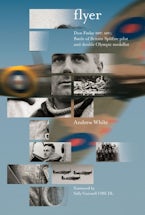Diaries and letters from service personnel who were held captive throughout the Second World War survive in quite large numbers, but rarely are they so detailed as those of John Blomfield Dixon, whose home was in the Hertfordshire town of Ware. Having joined the Territorial Army in 1938, he soon found himself hurried through officer training and, with the outbreak of the Second World War, being commissioned as a subaltern, attached to the East Riding Yeomanry.
Following his death in 2013, his family were bequeathed a series of scrapbooks, folders, maps, photographs and documents, along with a small pile of well-worn booklets, revealing his voracious appetite in describing his training, life and death during the retreat to Dunkirk, his humiliating capture by the enemy at the culmination of the Battle of Cassel and the long arduous journey through a series of ‘Offizierslagers’, which would, ultimately, lead him to Oflag VIIB, which was located in the Bavarian town of Eichstätt.
Complimented by a series of annotated photographs, some of which have not been seen before, this book provides an insight to the long tedious days, miserable food shortages, his thoughts for home, the woman he desperately loved, his hatred for both captors and captives, the killing of his comrades both on and off the battlefield, the tireless efforts and disasters of escape, and his passion for the theatrical life, which was borne out on dusty prison camp stages, all of which provide a picture of his experiences and emotions. His views and opinions on the wild and inaccurate rumours, as well as propaganda relayed through both the German and Allied press, paint an oft distorted picture of the war’s progression at that time.
The Normandy landings in June 1944 brought a sudden realisation that freedom may soon become a reality. However, the frustration and anxiety of anticipated release culminate in a terrible disaster at the very moment liberty appears upon the horizon. This was on 14 April 1945, when the prisoners were machine-gunned by U.S. aircraft as they moved to Moosburg. Fifteen were killed and a further forty-one were wounded.
Liberation too brings its own frustrations, borne out in the final diary entries and supplemented by a post-war summary of his long journey home.
Combined with a narrative lifted from both official records of the period, and the recollections of men who served or were imprisoned with him, the carefully selected entries not only provide one of the most detailed pictures of life at Oflag VIIB, but also serve to memorialise the service of John Blomfield Dixon and those with whom he shared his incarceration.











